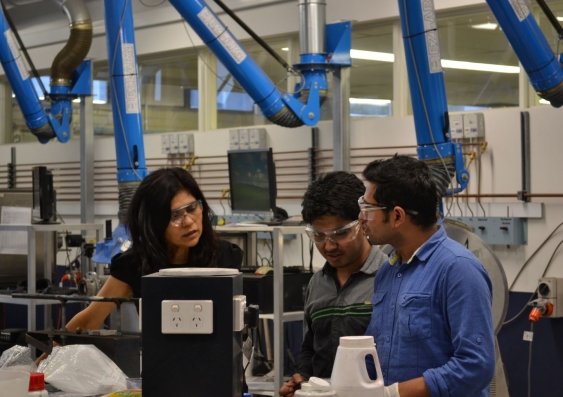A second UNSW research project has received funding under the Australian Government’s Trailblazer Universities Program (Trailblazer). A recycling and clean energy initiative led by UNSW Sydney in partnership with the University of Newcastle has been awarded $50 million, sharing a slice of approximately $250 million in government funding.
The two universities will join forces to lead research commercialisation initiatives that will help Australia and the world transition to sustainable recycling and clean energy solutions and systems.
Federal Government funding of $50 million has been matched by $50 million cash and $47 million in-kind from UNSW and the University of Newcastle for the recycling and clean energy initiative. Over 20 industry partners have expressed support for the initiative and have committed more than $130 million in cash and in-kind contributions.
UNSW Vice-Chancellor and President, Professor Attila Brungs, said that UNSW was proud and honoured to be leading Australia’s efforts in research commercialisation to support the nation’s manufacturing priorities.
“We are delighted to be able to work with the University of Newcastle and our innovative industry partners on transformative research projects that deliver real world outcomes. The Trailblazer program will undoubtedly strengthen university-industry collaboration to support the start-up and growth of Australian businesses. The Recycling and Clean Energy Trailblazer will create a step change in Australian environmental sustainability transition.
“UNSW has a proud track record of commercialising research such as solar panels, energy storage, Green Steel and various MICROfactorie technologies led by 2022 NSW Australian of the Year, ARC Laureate Professor, Veena Sahajwalla. We look forward to working with our partners on the Trailblazer program to deliver further change in the recycling and clean energy innovation landscape.”
University of Newcastle Vice-Chancellor Professor Alex Zelinsky AO said: “This partnership between University of Newcastle and UNSW will combine the strengths of our two universities to give us the power to accelerate Australia’s clean energy and recycling industries and bring more, greener technologies to Australians.
“This program will transform the way technology readiness, commercialisation and industry-led research are prioritised, taught and rewarded in our universities with targeted opportunities for university staff and students to succeed.”
Professor Nicholas Fisk, UNSW Deputy Vice Chancellor, Research and Enterprise said the Australian Trailblazer for Recycling and Clean Energy is targeting the commercialisation of at least 63 new products which will contribute to the achievement of net zero emissions by 2050, delivering critical new skills for a high value manufacturing workforce, and enabling cultural change and workplace reform in our universities.
“Our projects, partnerships and investment under this initiative will accelerate a decade’s worth of change in just four years and create a legacy in industry-university collaboration. It is truly national, with projects in metropolitan and regional areas, and in all Australian states and territories, and beyond.”
In partnership with industry, the universities have secured investment and commitments for the development and commercialisation of solutions helping Australia and the world transition to more sustainable energy and material systems in the following priority areas:
- Electrification, Energy Systems and Storage
- Sustainable Fuels and Chemicals Manufacturing (with a special focus on Power-to-X “P2X” based production methods for hydrogen and sustainable aviation fuels)
- Next Generation Solar PV and Systems
- Recycling and MICROfactories
UNSW was recently selected as academic lead – alongside University of Newcastle – and headquarters for the $15 million . The Hub is a key part of the NSW government’s Net Zero Industry and Innovation Program and will bring together government, industry, and researchers to fast-track technologies to decarbonise NSW.
Last month, a University of Adelaide and UNSW was also awarded $50 million under the Trailblazer program.


